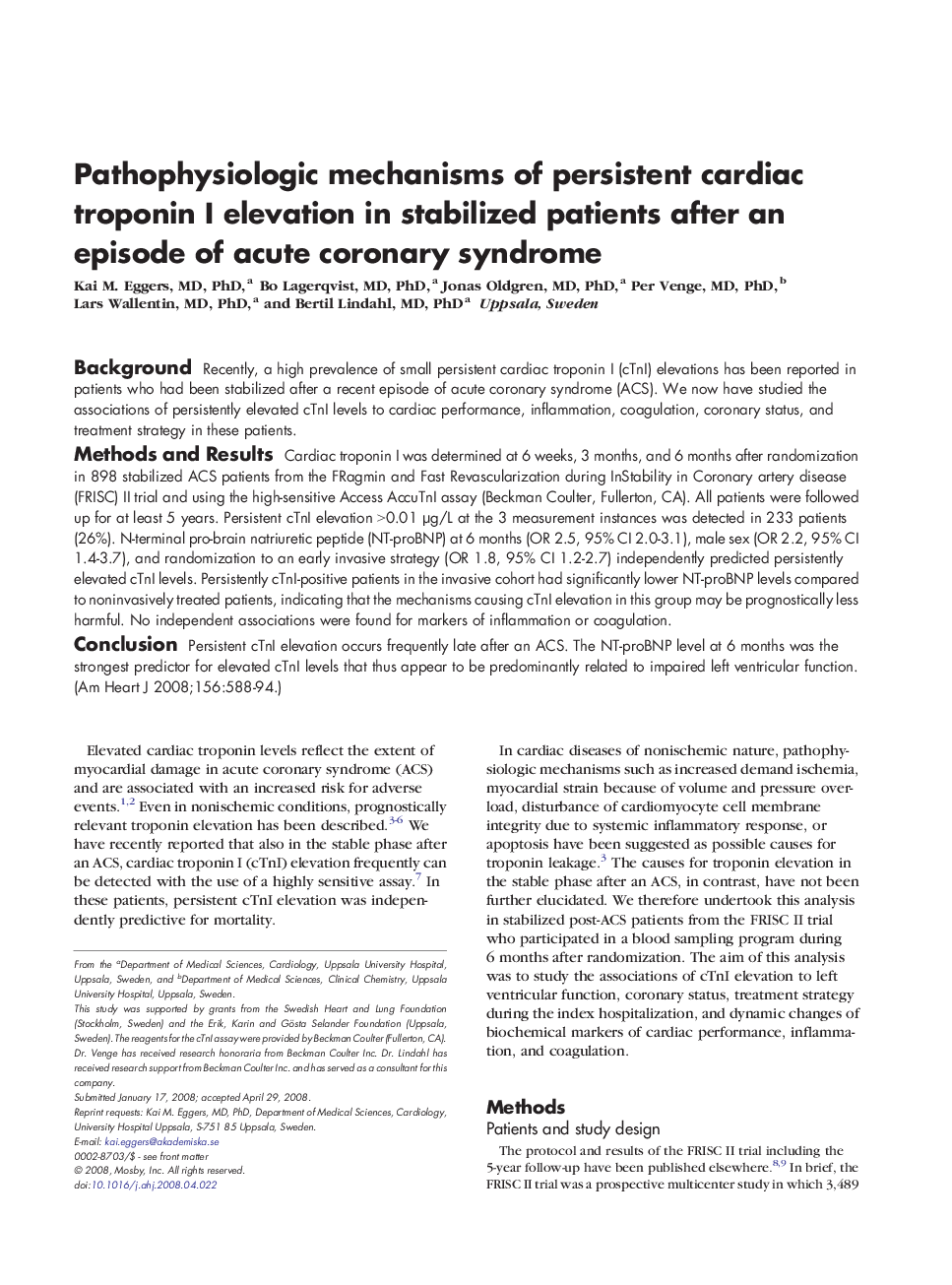| کد مقاله | کد نشریه | سال انتشار | مقاله انگلیسی | نسخه تمام متن |
|---|---|---|---|---|
| 2849878 | 1167731 | 2008 | 7 صفحه PDF | دانلود رایگان |

BackgroundRecently, a high prevalence of small persistent cardiac troponin I (cTnI) elevations has been reported in patients who had been stabilized after a recent episode of acute coronary syndrome (ACS). We now have studied the associations of persistently elevated cTnI levels to cardiac performance, inflammation, coagulation, coronary status, and treatment strategy in these patients.Methods and ResultsCardiac troponin I was determined at 6 weeks, 3 months, and 6 months after randomization in 898 stabilized ACS patients from the FRagmin and Fast Revascularization during InStability in Coronary artery disease (FRISC) II trial and using the high-sensitive Access AccuTnI assay (Beckman Coulter, Fullerton, CA). All patients were followed up for at least 5 years. Persistent cTnI elevation >0.01 μg/L at the 3 measurement instances was detected in 233 patients (26%). N-terminal pro-brain natriuretic peptide (NT-proBNP) at 6 months (OR 2.5, 95% CI 2.0-3.1), male sex (OR 2.2, 95% CI 1.4-3.7), and randomization to an early invasive strategy (OR 1.8, 95% CI 1.2-2.7) independently predicted persistently elevated cTnI levels. Persistently cTnI-positive patients in the invasive cohort had significantly lower NT-proBNP levels compared to noninvasively treated patients, indicating that the mechanisms causing cTnI elevation in this group may be prognostically less harmful. No independent associations were found for markers of inflammation or coagulation.ConclusionPersistent cTnI elevation occurs frequently late after an ACS. The NT-proBNP level at 6 months was the strongest predictor for elevated cTnI levels that thus appear to be predominantly related to impaired left ventricular function.
Journal: American Heart Journal - Volume 156, Issue 3, September 2008, Pages 588–594